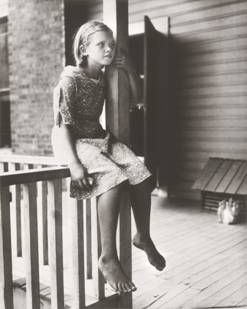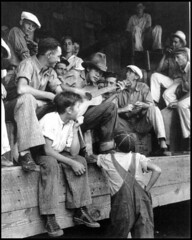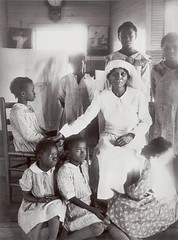Eudora Welty, the little old maid from Mississippi (who had a fairly torrid love life, at least according to her most recent biographer) is all of the above. She encoded profound truths in frequently humorous tales that stung with real life, then summed them up in lonely rueful titles like that one: no place for you, my love. I've never heard the human condition described so gently--or with such economy. Somehow, she who lived deeply on the ground she occupied, knew that home was an illusion. Our only real home is loneliness.

In a review of EUDORA WELTY: A BIOGRAPHY by Sharon Marrs, Michael Malone writes:
Like Carson McCullers (whom she didn't like), Eudora Welty knew that the heart is a lonely hunter; like Flannery O'Connor (whom she admired), she knew that the violent bear it away. But, most of all, like William Faulkner ("besides being the greatest writer to me, an attractive, darling person"), she knew that we are kin as well as strangers, and laughable as well as heroic; she knew that comedy and tragedy, the bizarre and the terrible, cannot be separated, and that given a choice between grief and nothing, she'd take grief.
An optimist's daughter, she agreed with Ken Millar's response to the bombing of Hanoi: "I believe we'll turn back from our own violence, and see what we have done is something that we can never do again." She would know now that they were wrong. But she wouldn't stop hoping.

"Photography taught me that to be able to capture transience, by being ready to click the shutter at the crucial moment, was the greatest need I had," she said. Her photographs from the thirties give weight to those words.

As a craftsman who could capture more in one telling detail than a lesser writer could in pages of description, and who never lost compassion for her flawed characters, she remains not merely a writer to read, but a writer to study.
7 comments:
Wow, what incredible photos. And yet more books to add to my long list. Now all I need is time and money. Great post, as usual.
I just discovered her photographs myself, and was really impressed.
i'm putting a link to your blog on my own. ya done good - keep it up.
Winter is coming and with it those short days and long nights. I've been looking for something to read to fill those times when I would have been outside in the garden. You've made Eudora Welty jump to the top of the list. Thanks for that.
You've sold me - I'll be searching for this one. I agree that there are few writers who can split us asunder, leave not as we were. I can count the writers I regard in this on one hand, but am always on the lookout for others.
Matt: thanks for the link. I like the mah-velous designation. Also liked your grandfather's poem. Will go back and explore more, but right now I've got to get ready for work.
r.d.: Ah, winter reading. My own list is so long, I'll never get through half of it. But it's fun trying.
Scot: I can see you as a Welty fan. You, too, have the gift of listening precisely. Aren't her titles great? Love the one about the P.O.
ruksak: next time you come, you'll have to let me know who the writers are who have "split you asunder," and influenced you.
Best regards from NY! cpu cache
Post a Comment